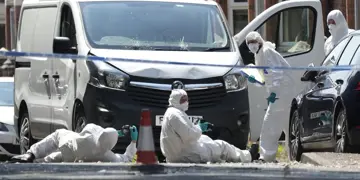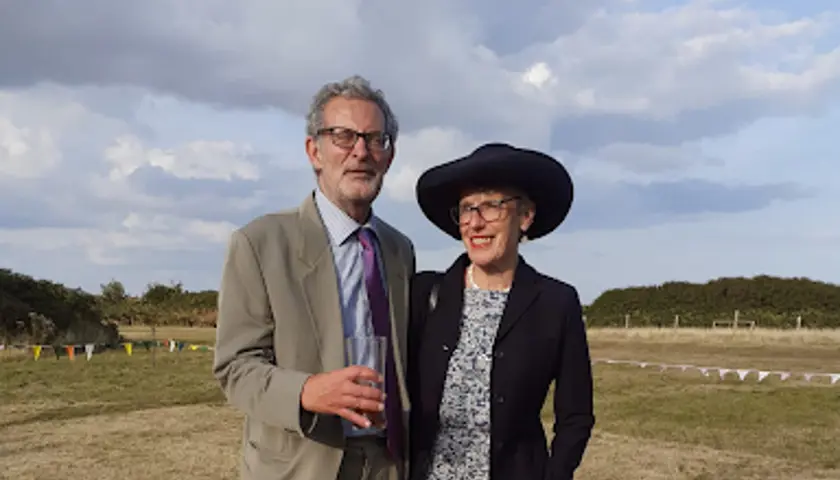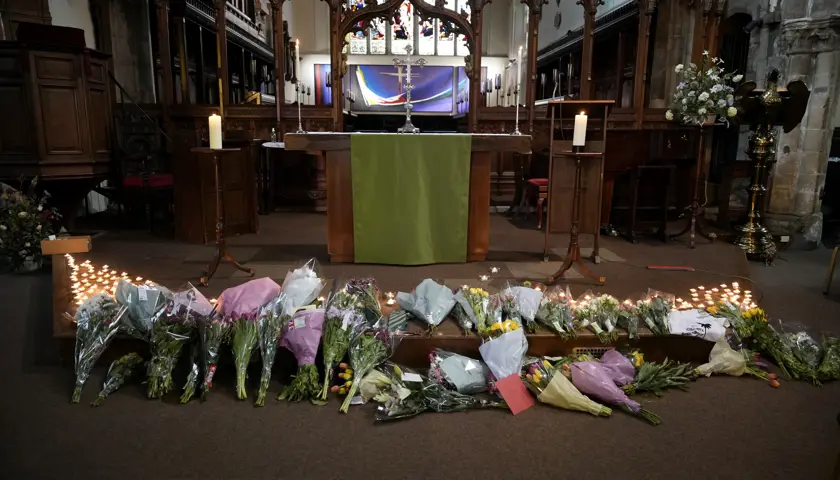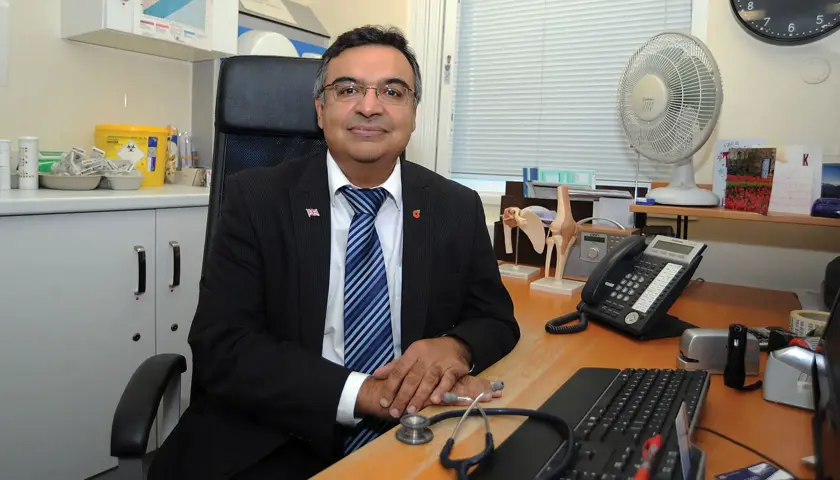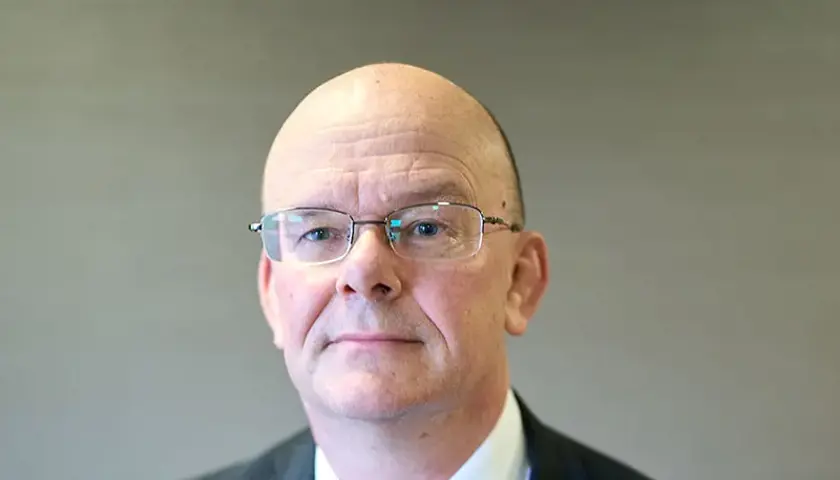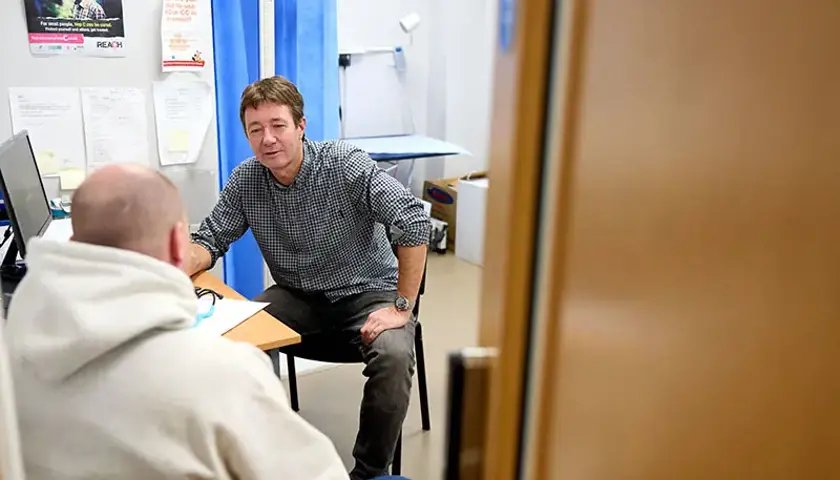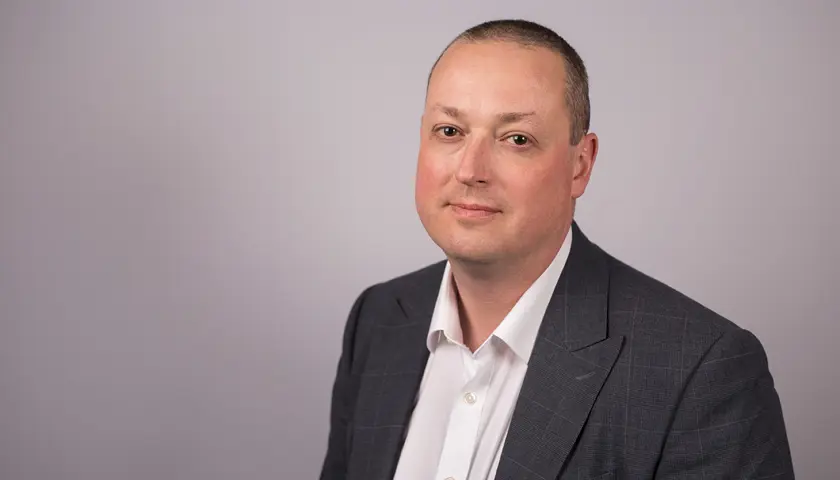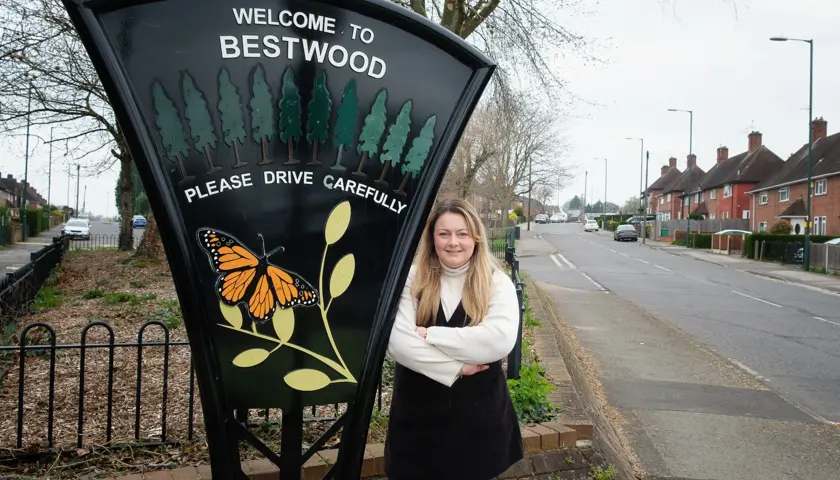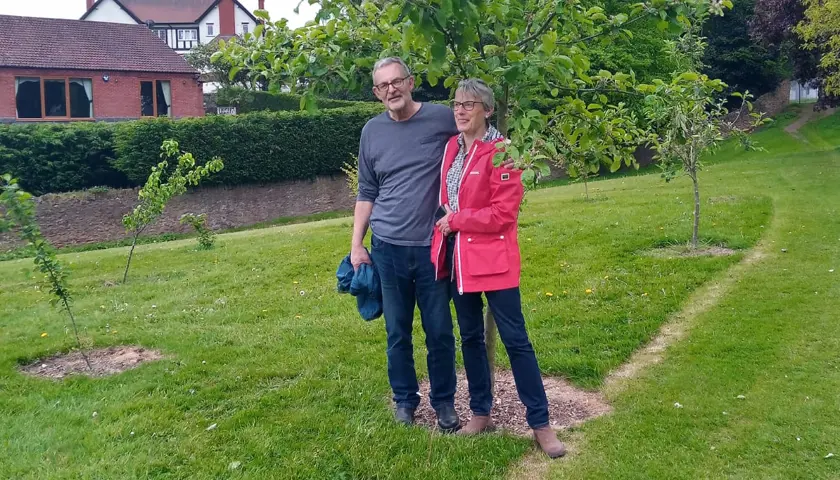Not the only failing
Not the only failing
The final part of a special review into Nottinghamshire Healthcare NHS Foundation Trust – ordered following the Nottingham attacks in which Valdo Calocane, a man who had been treated by the trust, killed three people in June 2023 – was published today and finds a series of errors, omissions and misjudgements in his care. An investigation by The Doctor finds years of concerns raised but lessons left unlearned, enduring fear about patient care and safety, major questions for culture and leadership, and a trust which is locked in a state of ‘anxiety’ and ‘panic’
When Sally Baylis met the staff responsible for looking after her husband she was assuming his death was just ‘unfortunate’ and simply wanted to know how he had been in the hours leading to his passing – but their ‘defensive’ attitudes quickly revealed his care had been ‘a mess’.
Ken Baylis, 67, was an inpatient at Millbrook mental health unit in Sutton-in-Ashfield and had been allowed to take unescorted leave from the unit, without the knowledge of his family. He stepped in front of a bus and died that day – 23 January 2023.
Despite Mr Baylis’ history of depression and repeated – serious and escalating – suicide attempts during the 14 months before his death, staff had failed to recognise the risk of him taking his own life.
The coroner, Elizabeth Didcock, issued a prevention of future deaths report to Nottinghamshire Healthcare NHS Foundation Trust following an inquest into his death in January this year. She described a failure to recognise a building picture of increasing risk of suicide, involve his family in planning, an inadequate risk assessment, and unchallenged reporting of Mr Baylis’ apparent lack of suicidal thoughts. She said these ‘omissions in care’ made a contribution to his death.
Mr Baylis was an avid music-lover whose impressive vinyl collection still sits proudly in a shelving unit in his old living room amid clearouts and an upcoming house move. His wife describes him as a one-off, defined by his sense of humour – someone who was ‘such fun to be around’.
The couple met at Kent University, producing radio plays for the student station together, and had four children. Ken worked in HR and Sally was the reverend at St Paul’s Church in Daybrook, just north of Nottingham city centre. They were married for 40 years and Ken’s funeral was ‘standing room only’.
A trust letter responding to the coroner’s concerns outlined policy changes including around named nurses, regular contact with families, beefed up risk assessments, refresher training for staff and an audit of serious incident processes in response to the issues raised. It describes Mr Baylis’ death as ‘sad’ and ends with the hope that the family and coroner are ‘reassured’ by actions taken. Ms Baylis feels the lack of patient and family-centred care she and her husband experienced is underlined by such a procedure-heavy response and describes ‘basic humanity’ as getting lost somewhere among the policies and box-ticking.
The failures in care outlined in Mr Baylis’ case appear to be familiar themes for the trust, which has been under the spotlight for months following the Nottingham attacks committed by Valdo Calocane.
The first two parts of a rapid review ordered by former health secretary Victoria Atkins were published by the CQC (Care Quality Commission) in March this year and found ‘enduring areas of concern’, including failures to manage demand for services, access to care, staffing and issues of leadership.
The final part of the review – published today, (Tuesday, 13 August) – reveals a catalogue of errors from the trust including inconsistent approaches to risk assessment, poor care planning and engagement, and discharging Calocane back to his GP with insufficient consideration of the risks given the evidence suggested he would ‘relapse into distressing symptoms and potentially aggressive behaviour.’
The CQC report said it had not found ‘widespread patterns’ within 10 benchmarking cases used for comparison but that ‘many’ of the issues identified were consistent with problems found in the wider review of the quality of care and safety of services at the trust.
Chris Dzikiti, CQC’s interim chief inspector of healthcare, said: ‘While it is not possible to say that the devastating events of 13 June 2023 would not have taken place had Valdo Calocane received that support, what is clear is that the risk he presented to the public was not managed well and that opportunities to mitigate that risk were missed.’
An investigation by The Doctor has found that concerns about the trust’s services – many similar to those in the CQC findings – have been raised repeatedly for several years and local experts say insufficient action has been taken by the trust, or organisations with oversight, and lessons are not being learned. Our investigation also highlights a panicked and anxious leadership and a culture where staff do not feel able to speak up.
We’ve almost given up and lost hope that there will be any change
Irfan Malik
New figures, obtained by The Doctor via the Freedom of Information Act reveal the trust was issued with 11 prevention of future deaths reports – like that in Mr Baylis’ case – in 2023/24. In comparison, annual figures were between zero and three for the prior nine years. Regulators are also concerned about ‘high levels’ of serious incidents.
The Doctor has also obtained figures which show deaths of patients while under trust care rocketed from 1,694 in 2014/15 to 4,149 in 2021/22 – a 145 per cent increase. More recent figures are incomparable owing to ‘natural deaths no longer being included’. The trust says this will be rectified for 2024 data.
The themes are clear in a series of prevention of future deaths reports from coroners. In 2017 and 2020 concerns were raised about failures to engage with the families of patients. One of the cases raised concerns about inadequate risk assessments.
Coroners’ reports
In 2020, one coronial report said the trust had included ‘many false and inaccurate statements’ in its investigation into the care of a patient who died. The trust was also criticised for one of its crisis team's gatekeeping services and considered their role to be ‘limited to avoiding the need for patients to receive inpatient treatment’.
In 2021, a coroner criticised the rejection of referrals, a decision to discharge without involving or communicating to the patient, lack of care coordination, and missed opportunities to intervene before a patient’s overdose – described as a ‘cry for help or to secure secondary mental health treatment’.
Last year, several prevention of future deaths reports were sent to the trust. In one case, concerns were raised about ‘limited risk assessment’ and ‘extremely limited family and carer involvement’. In another, issues including referrals being ‘repeatedly rejected’ were noted. In yet another, staff were found to have falsified records.
Earlier this year, coroners issued the same warning reports to the trust on failures around risk assessment and communication in one case and failures to respond to requests for help from a patient’s GP and poor engagement with family in another.
‘If you look at inquests, the themes are repeated over and over again,’ Nottingham GP Irfan Malik says. ‘We’ve almost given up and lost hope that there will be any change. We’ve got used to services being inaccessible and poor.’
The problems at the trust run deep. More than 30 members of staff at one of its main sites, Highbury Hospital, were suspended following reports earlier this year about serious misconduct including the falsification of mental health observations and maltreatment of patients.
And Rampton Hospital at the very north of the county, which is run by the trust, is also in real trouble. The high-security hospital, which houses serial killer Beverley Allitt among other violent offenders, was rated inadequate following inspections last year. The CQC no longer permits new admissions without express written permission.
Nottingham City Council health and adult social care scrutiny committee chair Georgia Power says the difficulties of running Rampton distract focus from the provision of basic services elsewhere. One doctor said it had always been an obsession for managers as the local ‘jewel in the crown’. Councillor Power has called for it to be removed from the trust’s responsibilities.
The Doctor has reviewed a document produced by Councillor Power which details the committee’s interactions with the trust over more than four years. It shows repeated warnings about care and leadership – many of which are prominent in recent CQC reports. They included people waiting too long to access services, the lack of a ‘waiting well’ policy to support people in the meantime, and anecdotal evidence of suicide attempts due to difficulties accessing care. Alarm bells were also sounded about inequity in services and the gatekeeping of inpatient care.
Three years ago, Councillor Power said access to care was already a ‘systemic issue’. She says the trust said this was ‘unfair’ – and suggested their staff would consider not attending future meetings unless she apologised. Councillor Power refused and reminded the trust of the committee’s ability to require them to attend meetings. Councillor Power says she believes the trust views the committee as ‘a problem and an inconvenience’.
The risk he presented to the public was not managed well and that opportunities to mitigate that risk were missed
Chris Dzikiti, CQC
Dr Malik says GPs have struggled to access care for patients who are moderately or even severely unwell for years – with many patients ending up turning to the police or emergency departments in crisis as a result.
One senior clinician working at the trust, whose identity we have protected to allow them to speak freely, tells The Doctor complaints about access are regular and that new patients are at the bottom of a pile beneath many people known to services who need more help. They said support offered now had to be more ‘tightly managed’ and shorter in duration’ due to vast waiting lists and that quality of care is impacted.
The Doctor has been told it can be hard to find enough staff to cover helplines intended for people on waiting lists, going into crisis, or in need of medication with ‘all sorts of serious calls coming in’. Concerns have also been raised that the IAPT (Now called ‘NHS Talking Therapies’) has seen an army of ‘cheaper therapists’ offering low-level support like ‘sleep strategies and managing emotions’ which will ‘make no difference to people with chronic problems’ leaving patients still in the system requiring more support.
That so many problems are still being echoed by regulators in 2024 raises serious questions about the leadership of the trust and the culture of the organisation.
Excluded from decisions
One member of staff working within the trust describes an environment where they are viewed as a ‘thorn in the side’ if they raise concerns. One doctor described a meeting where clinicians were told to raise their hand in front of colleagues and senior leaders if they had issues with the way things were being managed. And a local GP who works closely with mental health services says staff are ‘reluctant to say anything too challenging’.
The senior clinician whose identity The Doctor has protected said senior leaders moved up the management ladder quickly at the trust without any serious external training and had become ‘hyper anxious’ in response to the CQC inspections and reports. They said there was an ingrained culture where clinical staff were not involved in decisions and that the response to CQC concerns was being dominated by reactive decisions focused on making areas of concern look better rather than genuine soul-searching.
Staff have told The Doctor they have been asked to correct more trivial, aesthetic, issues like tidying rooms or basic bits of maintenance to facilities. They also said resources and staff were being moved from one crucial area to a different one which inspectors criticised so the trust can be seen to address specific issues raised without thought for the consequences.
The senior clinician said: ‘It doesn’t matter that it’s leaving another hole elsewhere because this one is where the attention is.’
The sense of being rushed into solutions is pervasive. The senior clinician said a ‘waiting well’ phone call introduced to check-in on patients yet to be seen was unevidenced and they feared it would increase anxiety among both the patients receiving the call and the staff making given these patients need support but will remain waiting for it. They said: ‘If someone kills themselves we can say in evidence that we made the call and did our bit but if I was a legal representative I would say “what makes you think doing that call would make any good difference at all?”’
It speaks of an environment where what is best for patients might sometimes get lost. Recently retired consultant psychiatrist David Rhinds, who was employed by the trust, said ‘we hardly ever spoke about patients’ in meetings.
Nottinghamshire Healthcare told The Doctor its ‘central priority’ was listening to the ideas and experiences of people who use and deliver services. It said senior leaders recognise the ‘need to bring about sustained change in the quality and safety of care’ and culture and have launched an improvement plan. It said it provides several ways for colleagues to provide feedback and challenge to leaders and welcomes the accountability provided by the health scrutiny committee. It listed improvements already made including increased contact with people waiting to be seen in the community, better alignment between teams to reduce waiting times and increased focus on risk management.
The lack of improvement has also led to questions about the role of the regulator and commissioners. Councillor Power says there isn’t visible enough leadership from either and is calling for much stronger holding of the trust to account locally and nationally.
Nottingham and Nottinghamshire ICB said ‘extensive governance arrangements, including oversight from the ICB’ have been put in place and ‘enhanced surveillance’ has been instigated around a ‘broad range’ of quality concerns and improvement plans. It said an improvement oversight and assurance group had been set up jointly with NHS England’s Midlands regional team to monitor the trust’s response to concerns. It also said it was holding regular meetings with the trust about immediate ‘safety challenges’ with accompanying monitoring dashboards in place, ICB representatives were attending the trust’s improvement board and a buddying system between Broadmoor, Ashworth and Rampton high secure facilities set up to drive standards.
The CQC said it has undertaken 11 inspections of the trust since February 2020. It said there has been ‘ongoing oversight through engagement on a regular basis’ and that its action on Rampton Hospital shows it takes enforcement action when required. It said assessments of services would continue to ensure patients are safe and that NHS England have placed the trust into the highest level of national oversight including the appointment of an ‘experienced improvement director’.
Wider pressures
There is little doubt wider pressures felt across the system nationally are having an impact.
Mental health services in England received a record five million referrals during 2023 – up 33 per cent from 2019. And the mental health workforce is not increasing at the required rate to meet current, or expected, demand. Since 2017 the number of children and young people in contact with NHS services has expanded at more than three-and-a-half times the pace of the psychiatric workforce. Vacancy rates for doctors and nurses working in mental health services sit at around 13.6 per cent and 14.8 per cent, respectively.
Dr Bicknell, who carries out Mental Health Act assessments in local services, says worries ‘about staffing levels’ on wards are common. And Dr Rhinds asks why anyone would want to join a workplace where resilience training is required to get through the day.
Dr Rhinds says cuts to bed numbers over the last 20 years have ‘come back to haunt’ the trust, too – with figures showing dramatic cuts across the country and many patients now sent miles away from home due to a lack of beds – often to expensive private facilities.
Funding is a constant issue, too. While there has been an increase in mental health funding, the proportion of NHS England budget spend on mental health has fallen since 2016/17 and the overall growth has been at a slower rate than overall expenditure.
Councillor Power urges the trust to advocate for the public in Nottinghamshire by speaking about how these national issues undermine the ability to provide care locally.
Nottingham – and many areas of the county – is also hamstrung by high levels of deprivation. NHS England figures suggest the number of people in contact with mental health services in communities with the highest levels of deprivation is more than double that of those in the least deprived. Nottingham city is in the worst quintile for deprivation in England and also now has a ‘bankrupt’ city council struggling to provide services and desperately trying to plug funding gaps by selling off local assets.
Trust staff members said patients often need support across physical and mental health as well as finance and access to food and housing – with local economies stagnating, businesses failing, and community and voluntary sector organisations creaking and collapsing under pressure.
No easy solutions
The BMA is urging the Government to increase resources to ensure services across the country can meet demand and is lobbying for ‘ambitious and measurable’ commitments to expanding the mental health workforce, funding protected against inflation, and an expansion of inpatient mental health beds in England.
BMA mental health lead Andrew Molodynski says care and facilities are so poor that people are often traumatised by their admission. He says: ‘After 14 years of austerity politics, the cost-of-living crisis and a pandemic along the way, we are living in a society where people’s chances of becoming mentally ill or having psychosocial crisis are significantly increased. Investment in mental health services has been nowhere near keeping up with massively increased demand so services are as stretched as they have ever been.’
Even understanding the national pressures faced across the country, Nottinghamshire’s mental health services are an outlier – heavily scrutinised with urgent action demanded. But what can be done?
The senior clinician working at the trust said leaders need to recognise it will take time to resolve things and accept the scale of the problems rather than looking for ‘quick solutions’ and ‘sticking plasters’ – otherwise you might find the ‘wrong answers’ for ‘more systemic and cultural issues’.
Dr Malik believes new leadership is the only way to make progress amid the current ‘unsustainable’ situation.
Councillor Power doesn't believe there is ‘the ability’ to turn the situation around among staff locally and wants external funding and further expertise to be increased.
Almost everyone The Doctor spoke to as part of this investigation said the voices of patients and families were lost in the chaos – and change might be impossible without their voices. Councillor Power says it shows the lack of listening from the trust that patients are still coming to her – a local politician chairing a committee few will be aware of – with complaints and requests for help.
The senior clinician said a positive step would be to place compassion at the heart of every change and every policy – with each requiring an interrogation of whether it is in the best interests of the staff member, patient, or family before being enacted.
For Sally Baylis, the calls for compassion and accountability would be welcome – but genuine honesty is also required. When the trust responded to the coroner about her husband’s case it referred to his death as ‘sad’. This was the wrong word. His death was more than just ‘sad’, it was avoidable.
- Until September 2024, resident doctors were referred to as ‘junior doctors’ by the BMA. Articles written prior to this date reflect the terminology then in use


